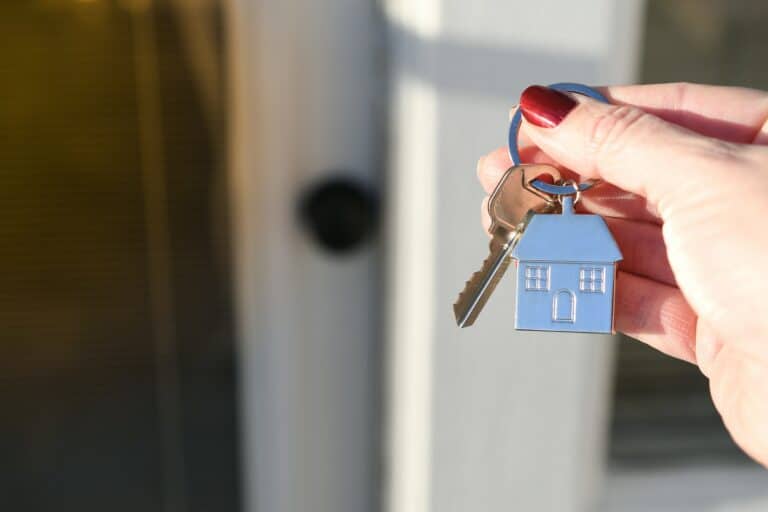There are a lot of factors to consider when making the decision to rent or buy a home. Some people may feel that renting is the best option because they don’t want to commit to a long-term mortgage, while others may think that buying is the better option because they will eventually own the property. No matter what side of the fence you are on, it’s important to weigh all of your options before making a final decision. This blog post will discuss renting vs. buying and why you should consider investing in a home!
There is no one-size-fits-all answer regarding renting vs. buying a home. It’s important to consider all the factors involved to make the best decision for your unique situation.
Is Buying Cheaper Than Renting?

The costs associated with renting vs. buying depend heavily on where you live and the local housing market. In Richmond, Virginia, for example, the average monthly cost for an 862 square foot apartment is around $1,458 a month , while a three-bedroom, two bath home is roughly $1,631. This may seem like there isn’t much difference in cost; however, when you consider the potential benefits of owning a home, such as tax deductions and equity appreciation, it can become more appealing to buy than rent.
Securing a rental property usually requires a security deposit in order to cover any damages caused by the tenant. When signing your agreement, you’ll be expected to pay for both the first and last month’s rent upfront. Before you sign off on anything, assess whether or not utilities such as water, electric, gas & internet are included in that monthly fee.
When comparing renting vs. buying, one of the most significant financial burdens of purchasing a home is your mortgage payment. It’s composed of principal and interest payments on your loan, which could change over time if you have an adjustable rate. Your mortgage may even increase or decrease due to alterations in property taxes or homeowners insurance premiums as well.
If you’re buying a house within a Homeowners Association (HOA), then be sure to include HOA dues into your budget. These HOA fees typically covering landscaping upkeep, exterior maintenance fees, and community benefits.
It is also extremely important to account for the hidden expenses that come with owning a home. These costs include repairs, maintenance, home insurance and property taxes. Depending on the age of your home, they can add up quickly in comparison to renting a place.
Renting vs. Buying: The Difference Between the Two
It is important to understand that the debate over renting vs. buying a home isn’t typically just centered around ownership and financials. You could decide on renting vs. buying due lifestyle choices and preferences. Here are a few other differences to take into account when it comes to renting vs. buying.
Tax Implications
The main tax break offered when you buy a home is the mortgage interest deduction. When you rent, you don’t get this benefit because your landlord isn’t responsible for paying taxes on the income they receive from renting out their property. On the other hand, homeowners can deduct mortgage interest payments and property taxes as deductions on their federal income taxes. This could equate to a substantial amount of money in savings every year!
Flexibility
If you’re looking for more freedom and flexibility, then renting is usually the better option. You can move out anytime without worrying about selling your home or trying to break a lease agreement. When you buy a home, you are locked into an area until you can sell the property and make back your investment.
Building Equity
When you rent, you’re essentially throwing your money away each month with no return investment. However, when you buy a home, each mortgage payment brings greater equity in your property. It’s like an investment that can pay off down the road when it comes time to sell!
No matter what decision you make between renting vs. buying, make sure you consider all of the factors involved in your decision. Be sure to do your research and crunch the numbers before you decide what’s best for you!
Maintenance Costs
The costs of taking care of a rental property or owning a home can differ. When renting, you’re not responsible for any repair issues that may arise, and your landlord is typically obligated to make sure the residence meets certain standards. With that being said, it’s important to always read through the lease agreement thoroughly prior to signing. When you own a home, however, it’s completely up to you to take care of the repairs and maintenance that come along with homeownership. This could cost thousands of dollars each year, depending on what needs to be done.
No matter what decision you make between renting vs. buying, make sure you take into account all of the factors involved in your decision. Be sure to do your research and talk to a real estate agent to learn about your different options!
Questions to Ask When Comparing Renting vs. Buying

As you can tell, the answer to renting vs. buying isn’t exactly cut and dry. Here are some questions you should ask when you are comparing renting vs. buying.
- How much can you afford to spend monthly on housing?
- How long do you plan to stay in the area or home? The typical rule of thumb is if you plan to be there less than five years, you should probably rent.
- What are your financial, career, and family goals? Is there a possibility of relocating for work? Go back to school? Maybe even expanding your family?
- Can you afford any repairs and maintenance costs that may pop up?
- Are you prepared to make a long term investment?
- Are you looking for flexibility or stability?
Renting vs. Buying: Where do you Stand?
Determining if you should rent or buy is a personal decision that depends on your financial situation and lifestyle. Renting can provide more flexibility while buying allows you to build equity over time. It’s important to consider all of the factors involved before making a decision and make sure you do your research! Our team at Honey Tree Realty is here to help you through each and every step of the home buying process, which even means discussing the pros and cons of renting vs. buying.